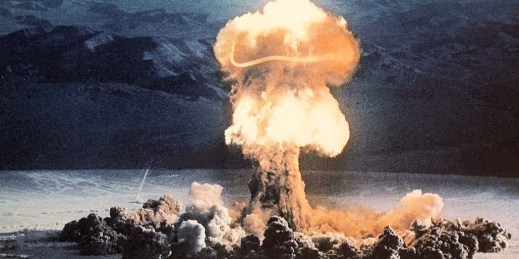
The confirmation process last week for David Barron, a former Obama administration lawyer nominated to the federal judiciary, reopened a debate about the justification for what has come to be known as the U.S. “targeted killing” program. But as the politics of the issue heat up, the administration and its critics seem to be relying on different interpretations of the terminology at the heart of the debate, and their underlying disagreement speaks to broader questions about the future of the American war on terror. For many critics of the administration’s approach to counterterrorism, the term “targeted killing” has come to […]



